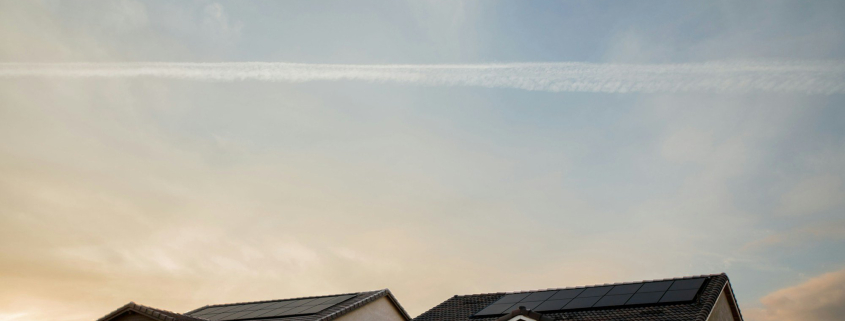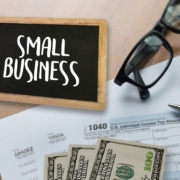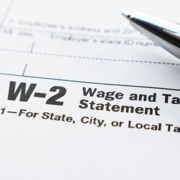Home Energy Audit Tax Benefits
- Learn about the home energy improvements and tax credits available.
- What is a home energy audit?
- Learn about the annual credit limit, improvement category limits, and non-refundable credit.
- Understand energy property qualifications.
Have you been thinking of making home improvements? If so, and they include energy-saving improvements, you may qualify for some substantial income tax credits. Even if home improvements aren’t currently on your to-do list, with the increasing cost of energy you may find that energy-saving home improvements, along with the tax credits that accompany them, are something you should be considering.
Don’t Know Where to Start?
Perhaps a good starting point would be with a home energy audit that identifies the most significant and cost-effective energy efficiency improvements you could make with respect to your principal residence, including a written estimate of the energy and cost savings with respect to each improvement, allowing you to pick the ones that best serve your needs and finances. In addition, the tax code now includes a tax credit of 30% of the cost of a home energy audit performed by a qualified home energy auditor up to a credit of $150 per year. The home energy auditor is required to provide you with a written audit report. This credit is in addition to the annual credit limit for the actual energy-saving home improvements you make. You can search the internet for a qualified auditor in your area.
For home energy audits in 2024 or a later year, you will need to substantiate that a qualified auditor conducted your home audit. To satisfy this requirement, the written audit should state that the auditor is certified by one of the certification programs listed on the Department of Energy certification programs for the Energy Efficient Home Improvement Credit page to conduct the home energy audit.

Energy Saving Home Improvement Credit Limits
When making an energy-saving home improvement that qualifies for a credit, keep in mind there are credit limits that you must consider to maximize your annual credit:
- The annual credit limit is $1,200. So, it may be appropriate to plan your home energy improvements over multiple years to maximize the tax credit.
- The improvement costs also have limits based on the category of the improvement. For example: Assume an energy-efficient exterior window is one of your improvements and it costs $1,000. The credit allowable expense for an exterior window is only $600. Thus, the allowable credit for that window expense would be $180 (30% of $600).
- The credit is non-refundable, meaning it can only reduce your tax liability to zero and there is no carryover of unused credits to a subsequent year. However, don’t confuse that with the fact that you are reducing your overall tax. You can be receiving the benefit of the credit and still have a tax liability.
The caps and categories of improvements under the annual $1,200 limitations are as follows:
- $600 for any item of qualified energy property, that generally includes (this is not a complete list; it only includes the more common improvements):
o An electric or natural gas heat pump water heater.
o An electric or natural gas heat pump.
o A central air conditioner.
o A natural gas, propane, or oil water heater, and
o A natural gas, propane, or oil furnace or hot water boiler. - $600 for exterior windows and skylights,
- $250 for any single exterior door and $500 in the aggregate for all exterior doors.
Not subject to the annual $1,200 limit or the $600 per item limit and instead subject an aggregate annual limit of $2,000 are:
- heat pumps,
- heat pump water heaters,
- biomass stoves, and
- biomass boilers
Thus the maximum annual energy-efficient tax credit is $3,200 ($1,200 + $2,000 = $3,200).
Tax Code Requirements
The tax code sets out the requirements that must be met for the energy property to qualify for the credit. A few examples: exterior doors must meet Energy Star requirements, windows, and skylights must meet Energy Star's most efficient certification requirements, and electric or natural gas water heaters must meet or exceed the highest efficiency tier (not including any advanced tier) established by the Consortium for Energy Efficiency (list available at CEE Directory | AHRI (ahrinet.org)) that is in effect as of the beginning of the year in which the property is placed in service A home energy auditor or the seller/installer of the property should be able to provide you with the details. Be sure to ask for and retain written material that confirms the energy property qualifies for the credit, just in case the IRS wants proof of eligibility.
Contact your Fiducial Advisor for more information about qualifying improvements and assistance in timing your energy efficiency improvements to maximize the tax benefits.
Call Fiducial at 1-866-FIDUCIAL or request an appointment online at one of our office locations to discuss your situation. Know someone who might need our services? We love referrals!









